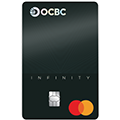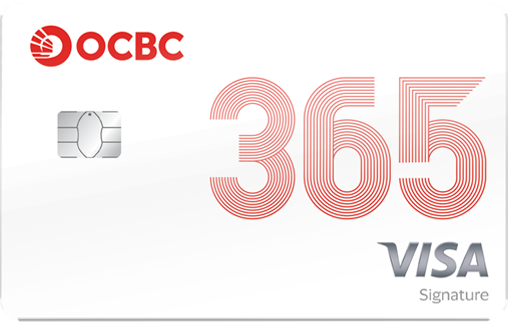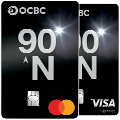Guide to moving to Singapore
Guide to moving to Singapore
Singapore is a vibrant city that offers a rich tapestry of experiences. With a high standard of living, diverse job opportunities, a world-class education system, and a robust economy, it is a prime destination for individuals in the region considering a move for work or study.
If you are considering a relocation or are in the process of planning your move to Singapore, this guide will provide comprehensive and essential information for a successful start to life in the Lion City.
Working in Singapore
Singapore's thriving economy presents a wealth of opportunities for individuals seeking career advancement. With multinational corporations and innovative tech startups, the city-state serves as a hub for diverse sectors, including finance, biotechnology, information technology, and many others.
To work in Singapore, you will need a work pass. The type of work pass you need will depend on your profession. Common work passes include the Employment Pass, EntrePass, and S Pass. Parents with employment passes and meeting salary requirements can also secure a Dependant's Pass for their spouse and children. After obtaining a work visa or pass, be sure to apply for the SingPass digital identity account for access to key Singapore government e-services.
To ensure a seamless transition, it is important to have a Singapore bank account so that you can have your salary credited directly and safely deposit any cash, in order to engage in any financial transactions needed during this transition.
Housing in Singapore
There are a variety of housing options available in Singapore, including high-rise condominiums, landed properties, and public housing (HDB flats). To find the right housing for you, consider your budget, preferences, and location.
When choosing a neighbourhood, consider factors such as proximity to your workplace, transportation options, dining areas, and schools. Popular areas among expats include Bukit Timah, Orchard, Tanglin, River Valley, and the charming Tiong Bahru estate. For those working in off-central business parks, areas like Tampines, Bedok, Pasir Ris, Boon Lay, or Pioneer may be more convenient.
Whether you are renting or buying a property, consider enlisting the help of a knowledgeable property agent to effortlessly navigate the real estate market. Their expertise can guide you through location selection and lease agreements and provide valuable insights into the housing market. To simplify your search, utilise various online portals where you can find listings for entire homes or single rooms. You can even schedule property viewings remotely before setting foot on the island.
To help you finance your housing purchase, OCBC offers a range of home loan packages for foreigners buying a property in Singapore, with competitive interest rates and flexible repayment terms. Our team of experienced mortgage specialists will work with you to find the right loan for your needs and budget.
Studying in Singapore
Singapore has a world-class education system, providing a multitude of opportunities for higher learning. Moreover, the process of obtaining a Student's Pass is straightforward, and the multicultural backdrop of Singapore provides an enriching and globalised learning environment.
If you have secured a MOE Tuition Grant for a full-time undergraduate or postgraduate programme at Singapore’s local public universities, NUS or NTU, you are eligible to apply for a Tuition Fee loan with OCBC. This is a great option for international students to get the financing they need to pursue their education in Singapore.
If you're relocating to Singapore with your children, there are a variety of schools available, including local schools, international schools, and private schools.
Transportation in Singapore
Singapore has an efficient and well-connected public transportation system. The two main modes of public transport are trains (the Mass Rapid Transit, or MRT) and buses. They provide seamless connectivity across the city-state, making daily commutes easy. Taxis and ridesharing services are also widely available, offering convenient and direct commutes.
You can use an EZ-link card or your own bank card (Mastercard or Visa) for fare payment on buses and trains. Adding your card to your mobile wallet also enables you to enjoy seamless and convenient transportation payments across the city. With a Singapore bank account, you can apply for a debit card easily to use as your transport card.
Banking in Singapore
One often-overlooked yet vital aspect of relocating is setting up a bank account in your new home country. It is important to have a bank account in Singapore ready as soon as you arrive to manage your finances and access your money.
OCBC offers a convenient way to open a bank account. You can open a Singapore bank account remotely within minutes, even before you arrive in Singapore. To do so, you must be above 18 years old and hold a biometric e-passport from Hong Kong, Malaysia, Indonesia, or mainland China.
The account offers access to up to 9 major currencies and no admin fees. This is valuable if you frequently make international transactions or need to manage money in both your home currency and Singapore dollars.
Plan for a smooth transition
Moving to a new country can be a daunting task, but it is also an exciting adventure. Whether you are moving to Singapore for work, study, or housing, you can make the transition to life in Singapore smooth and successful with careful planning and preparation.
With the ability to open a Singapore bank account remotely, you can focus on the other aspects of your move. As a welcome reward, get S$15 in cash when you deposit at least S$1,000 in fresh funds within 30 days of successful account opening. Terms & Conditions apply. Experience hassle-free banking with OCBC today.









